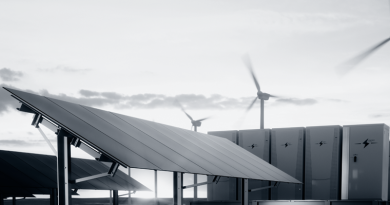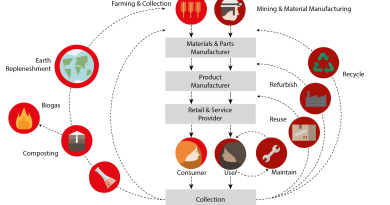How Novotek is helping the energy industry meet its sustainability development goals
This is the second of two articles where we examine the key industries of water and energy in the context of The Sustainable Development Goals, developed by the United Nations. In the first, article we looked at the water industry, with a particular focus on how it could improve water quality, minimising leakages, and reduce untreated wastewater entering the environment. In this article, we look at how energy companies can ensure the lights stay on and the consumer benefits from clean and affordable energy.
Affordable and clean energy
Energy is the dominant contributor to climate change, accounting for around 60 per cent of total global greenhouse gas emissions. More recently, with the war in Ukraine, it has also become a national security issue. So, as well as, increasing substantially the share of renewable energy in the global energy mix and doubling the global rate of improvement in energy efficiency by 2023, energy providers also need to ensure universal access to affordable, reliable, and modern energy services.
Achieving this is a huge task, but as with the water industry, it starts with data. With data you can fuel the advanced technology needed to monitor, predict and reduce emissions. So, for instance, using advanced analytics and artifical intelligence (AI) energy companies can set and achieve emission targets. And with greater
visibility and understanding it is easier to identify cost-saving in the network. This is set against a background of an increasing number of distributed energy sources, companies, digital technologies, and solutions in use; coupled with the fact that this technology is also beginning to mainstream the bi-directional flow of power back into the grid from consumer level via domestic battery storage and generation such as solar, and vehicle to grid technology.
There is no doubt that energy systems are becoming more and more complex and multi-factorial. Therefore, the need for data to integrate, so it can be managed as a whole, becomes more vital. This is essential to provide greater insight and thereby achieve net zero.
Gathering data allows companies and policy makers to visualise and monitor the totality of the transition to a decarbonised energy system in real time. With a clearer view they can determine the direction in which the transition is moving, and the effectiveness of implemented policy. The more visibility of data, the more business and policy makers can move away toward a proactive approach, built around data driven predictions.
In summary, managing the change from fossil fuel to decarbonised power generation requires the necessary data so that a balance between the environment and business economies, can be achieved. To see how this can work in practice download this useful whitepaper.
To learn more about how Novotek can help the energy industry achieve its sustainability development goals, get in touch with us here



